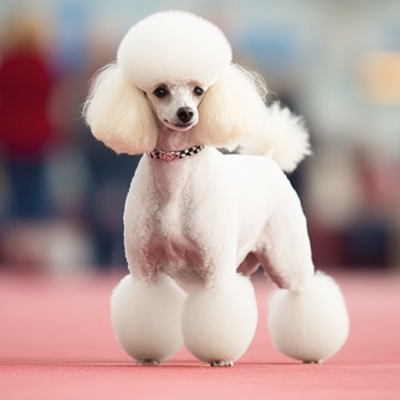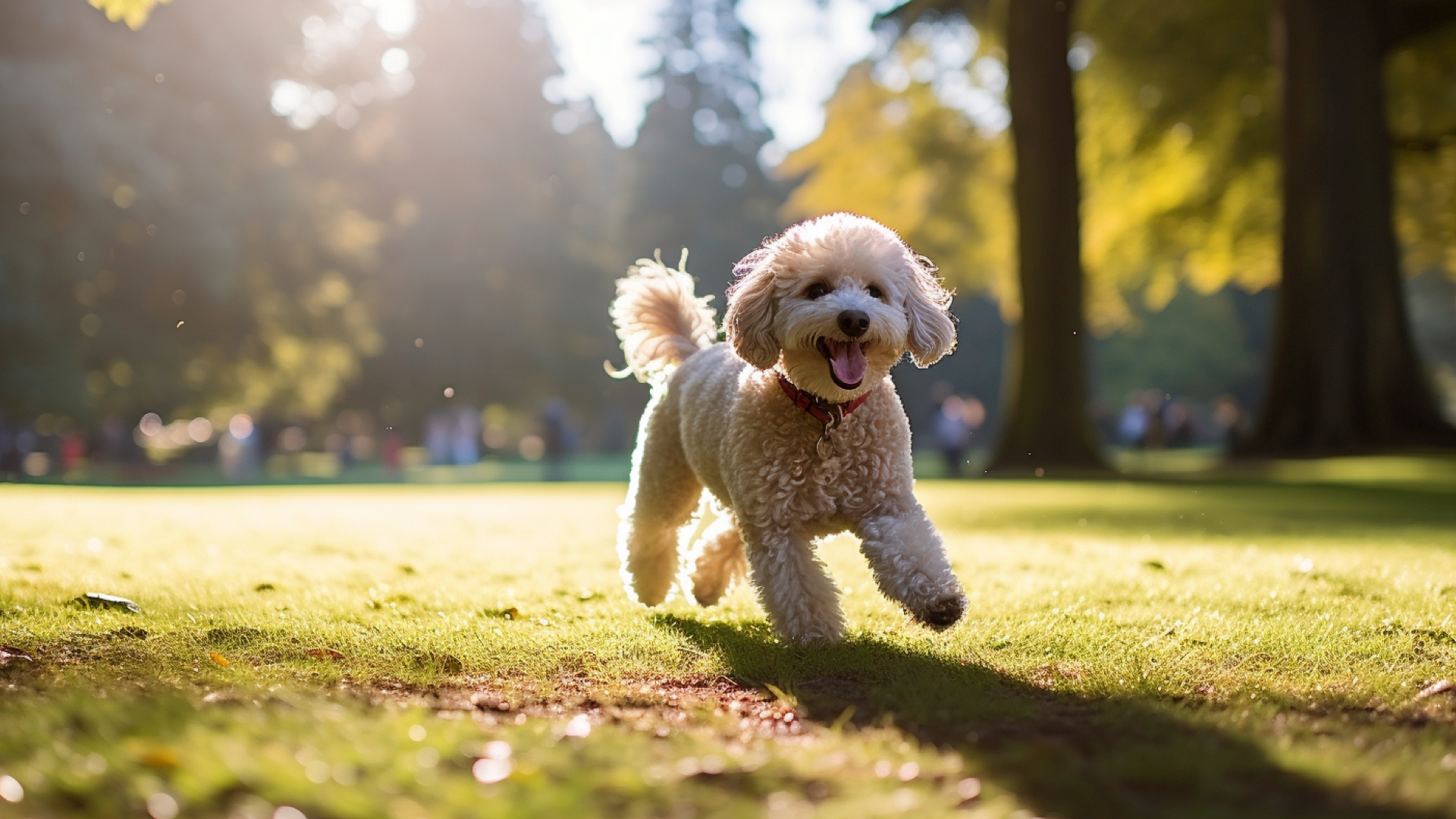The Poodle:
More Than Just a Pretty Face
Summary:
Meet the Poodle, a breed that is much more than its glamorous appearance suggests. Known for their exceptional intelligence, Poodles are quick learners and problem solvers. Beyond the show ring, where their grace and posture are celebrated, they lead active, engaging lives, thriving on exercise and play. Their iconic coats are a grooming commitment, but one that many poodle parents find rewarding. Perfect for families, these dogs are known for their loving and gentle temperament. However, like all breeds, Poodles have unique health considerations and benefit from a tailored approach to training. Dive into the rich history of this remarkable breed, and discover why the Poodle is so much more than just a pretty face.


Meet the Poodle, the epitome of canine elegance and intelligence. Often perceived as a ‘frou-frou’ dog with a fancy haircut, there’s so much more to this breed than meets the eye. Poodles are one of the most intelligent and versatile dog breeds in the world. From the show ring to the living room, they are as adept at winning trophies as they are at warming hearts. But what makes the Poodle more than just a pretty face? Let’s unravel the rich tapestry that makes up this remarkable breed.
The Poodle is no ordinary dog; it is consistently ranked among the most intelligent breeds. These dogs have exceptional problem-solving abilities, often surprising their owners with their ingenuity. For example, many Poodles have been known to open doors or figure out how to turn on a faucet. Their intelligence is not just instinctive; they are also incredibly receptive to training. However, this intelligence means they require mental stimulation to avoid boredom. Puzzles, advanced obedience training, and interactive toys are essential for a happy, healthy Poodle. Common training mistakes with Poodles often stem from underestimating their intelligence, leading to insufficient mental stimulation and resulting behavioral issues.
Graceful and poised, the Poodle is a natural star in the dog show world. Their elegant posture and keen intelligence make them exceptional competitors. Poodles can be found in various show categories, from obedience to agility and conformation. Training a Poodle for dog shows is a unique and rewarding experience, requiring patience, consistency, and a deep bond between dog and handler. The Poodle’s history in dog shows is extensive, with numerous championships under their belt, further proving that they are far more than just a pretty face.
Don’t let their posh appearance fool you; Poodles are active and energetic dogs. They thrive on regular exercise and love activities like swimming, hiking, and playing fetch. Indoor games and mental stimulation are just as important; hide and seek with toys or treats is a Poodle favorite. Regular exercise is not just for their physical health; it is crucial for their mental well-being, helping to prevent anxiety and destructive behaviors that can arise when they are bored or under-stimulated.
The Poodle’s iconic curly coat is both a fashion statement and a functional trait. There are different Poodle coat types, including the curly, corded, and wavy varieties. Essential grooming tools for a Poodle include a high-quality brush, clippers, and scissors. While many Poodle owners opt for professional grooming services, at-home care is also possible with the right tools and a bit of patience. Common grooming mistakes include not brushing frequently enough, leading to painful mats, and not properly cleaning and drying their ears, which can lead to infections due to their floppy nature.
Poodles are more than just companions; they are family. Known for their gentle and loving temperament, they are fantastic with children and other pets. Early socialization is key, teaching the Poodle to be calm and composed in various situations. Consideration should also be given to the Poodle’s living conditions. While they are adaptable, they thrive in environments where they have enough space to play and explore.
Like all breeds, Poodles have their health considerations. Some common health issues in Poodles include hip dysplasia, eye disorders, and certain types of cancer. Preventative care, including regular vet check-ups, a balanced diet, and proper exercise, can go a long way in ensuring a Poodle lives a long, healthy life. Nutrition is particularly important; a diet rich in high-quality proteins and fats, with minimal fillers, is ideal for keeping a Poodle’s coat shiny and their body healthy.
Training a Poodle is generally a joy, thanks to their keen intelligence and eagerness to please. Positive reinforcement techniques, such as treats and praise, work exceptionally well. Socialization training should start early, exposing the puppy to various people, animals, and environments. For those struggling with specific behavioral issues, or simply wanting to take their Poodle’s training to the next level, finding a professional dog trainer can be a game-changer.
The Poodle’s origins are as curly as its coat. Contrary to popular belief, the Poodle is not a French breed; it actually originated in Germany, where it was initially used as a water retriever. The breed’s name even comes from the German word “Pudel,” meaning “to splash.” Over time, the Poodle’s intelligence, elegance, and charm led it from the lakes and rivers of Germany to the royal courts of France, and eventually, into the hearts of dog lovers around the world.
In the end, the Poodle proves to be a breed of both beauty and brains, a perfect blend of charm, intelligence, and athleticism. They are not just show dogs; they are family members, therapy animals, and sometimes, they are the furry comedians that bring a daily dose of joy into our lives. So, the next time you see a Poodle prancing down the street, remember: behind that stylish haircut is a dog with a history as rich as its personality, and a heart as big as its brain. The Poodle is, indeed, so much more than just a pretty face.


